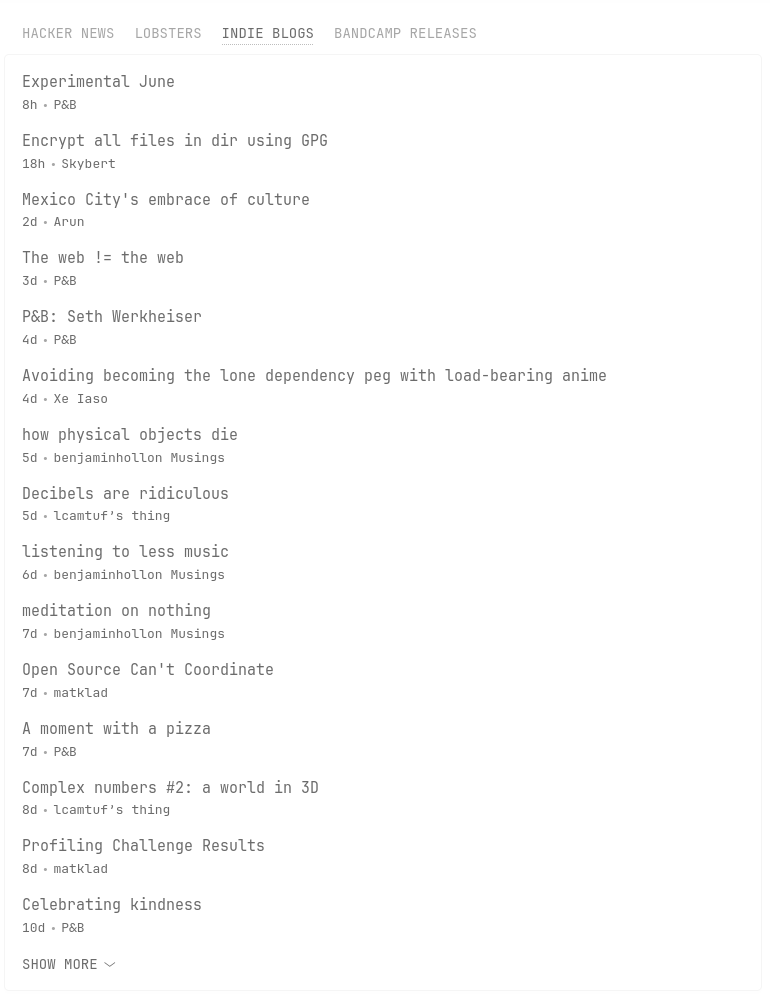How technical skills give me control and freedom
I’m not sure how this blog post could reach people that would benefit from this thought, but I’ll write it anyway. That and an ode to curiosity at the end.
Why Are Technical Skills Relevant
Modern technology shapes every aspect of our lives, how we communicate, how we work, how we entertain ourselves and even how we think.
Being knowledgeable helps you better understand what’s around you.
There are obviously several degrees of technical skills: from your grandma checking her emails and calling you when her Wi-Fi somehow got disabled to the hardcore Linux driver developer who interrupts their work to help their grandma.
A middle ground can earn you some freedom and autonomy.
Technical Knowledge Gives You Choice
When you get to a certain point of technical knowledge, you inevitably have to start tinkering with things.
This simple act of playing with software, exploring its possibilities or trying to achieve an idea is a manifestation of freedom: you’re not just a passive user shaped by some company’s product, you’re the shaper. You decide what your tool should be.
This might seem obvious to developers, but whenever you get an idea, or you can’t find a tool that answers your needs, having technical skills allows you to just build it. And if you think “But I have no idea how to do it”: take the time to learn how to make it and then the next time you’ll need to, you’ll know how to.
I’m not even talking about open-source software and how you can take part in this massive community.
Reclaiming Digital Sovereignty
Most people accept whatever services are popular and become passive users of tools they never consciously chose. They don’t even know that choice is an option.
Technical knowledge makes you aware of the internals of popular products. Data collection, privacy trade-offs, invasive algorithm, there are a lot of subjects to be concerned about.
Over time, I’ve been less and less reliant on big online services. I want to shift from being fed by algorithms to actively choosing my sources of information and entertainment. And it’s thanks to technical skills that I’m able to:
- Question my current media consumption
- Find better solutions
- Actually implement those solutions in my life
For example, I use RSS feeds to get news from blogs and YouTube channels I like. These RSS feeds are fetched by a Glance instance that I host on my home server (but any RSS reader could do it).

Another example: I self-host Jellyfin, an open-source alternative to Spotify (and Netflix).
- I save money by not having a subscription
- No algorithm gets to analyse my listening habits
- I’m more aware of what I listen to / It slows down my music consumption
- I can reinvest some money to better retribute artists and actually own my music
Did You Lose Your Curiosity?
A last word to invite you to not stop learning. As we get older, we tend to slow down or even stop entirely. There’s a kind of complacency that settles in once people become adults and enter working life.
Do yourself a favor: don’t stop being curious. And if you’ve lost it, rediscover to enjoy the process of learning new skills.
There is something related I like to think about. I’m quite young, I’m 22 years old right now. I’ve been doing programming for about 5 years now and have built a pretty solid knowledge foundation. If I live another 60 years (I hope to), just imagine all the things I could learn or create. This motivates me to always keep learning. That, and the fear of mediocrity.